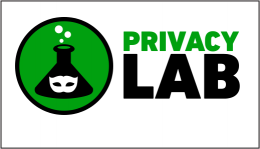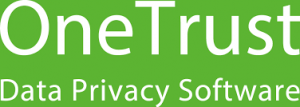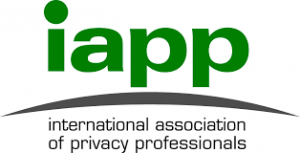Home
Use our global calendar of privacy events to locate an event near you.
FILTER BY

Join the Software & Information Industry Association for a free public webinar to discuss new and practical ways to think about privacy issues!
How can privacy be better protected in an age of robots, artificial intelligence, and ubiquitous data collection? What principles should guide government and industry? What steps should they consider?
Get answers to these questions and more from tech experts themselves at SIIA’s webinar on guidelines for privacy policymakers. The webinar and the guidelines will interest and inform all those involved in privacy discussions, especially:
Government officials who are responsible for developing, adopting and implementing measures to protect consumer privacy.
Company and institutional privacy officers seeking to establish good practices within their organizations with respect to personally identifiable information.
Reporters, commentators, scholars and advocates seeking to understand or change consumer privacy policy.
Tuesday July 26th
2 PM – 3 PM
Those registering for the webinar will receive an advance copy of SIIA’s guidelines before their public release. The guidelines are a short, concise set of recommendations for privacy policymakers with accompanying background material and illustrations to make the recommendations plausible and actionable.
Featured speakers are:
Mark MacCarthy, SVP Public Policy, Software & Information Industry Association
Thomas Lenard, President & Senior Fellow, Technology Policy Institute
Nuala O’Connor, President & CEO, Center for Democracy & Technology
Call-in Information will be provided upon RSVP

Join us for presentations and a lively discussion around Student Privacy. Guest speakers include:
*Alex Smolen, head of security/privacy for Clever
*Andrew Rock, online privacy and safety policy for iKeepSafe
*Jessy Irwin, security, privacy and trust advocate
Andrew Rock will present:
Tools, Training, and Tech Assessments – Helping Education and Industry Adjust to a New Student Privacy Paradigm
Educational technology has evolved rapidly in recent years, and privacy legislation has followed. Despite new regulations, when it comes to student privacy, many school districts and educational technology vendors currently operate under a reactive paradigm — preparing minimally and responding to digital incidents as they occur. In response to this phenomenon, iKeepSafe has carefully designed and developed programs and resources that aim to effectively help stakeholders readjust this paradigm, fostering a positive digital culture. These include privacy assessments, educational programs, and other accessible tools for educators and vendors.
Jessy Irwin will present:
Technology, Privacy, and Student Surveillance
Since 2011, billions of dollars of venture capital investment have poured into public education through private, for-profit technologies that promise to revolutionize education. Some education technology products do little more than track and record every move students make in the classroom, grooming students for a lifetime of surveillance and turning education into one of the most data-intensive industries on the face of the earth. This talk will examine how technologies make their way into the classroom, and discuss some of what can we do to help protect students who have no consent this process.
———
As per our standard format, the first hour will be devolted to speakers and Q&A, followed by a second hour for informal networking and small group discussions to give speakers and attendees a chance to talk to each other.
Privacy Lab is a meeting for people who are interested in digital privacy in the Bay Area. The goal of these events is
to bring together privacy professionals and privacy community members at non-profits, for-profits, and NGOs alike to foster communication and collaboration.
For those who can’t attend in person, we hope to livestream and record the event and will share those details through our email distribution list.
More information about this event and future events can be found at:https://wiki.mozilla.org/Privacy/Privacy_Lab
To hear about future events, please join our mailing list, which will send out approximately one mailing and a couple reminders a month publicizing that month’s event:https://mail.mozilla.org/listinfo/privacy-events. Note that RSVPs will be added to this mailing list as well.
Privacy Lab events are dedicated to providing a harassment-free conference experience for everyone, regardless of gender, gender identity and expression, sexual orientation, disability, physical appearance, body size, race, age or religion. We do not tolerate harassment of event participants in any form. Event participants violating these rules may be sanctioned or expelled from the event at the discretion of the conference organizers. Our anti-harassment policy can be found at: https://wiki.mozilla.org/Privacy/Privacy_Lab#Code_of_Conduct

Discussants
Klaus Botzet, Head of the Political, Security, and Development Section, Delegation of the European Union to the United States of America
Julie Brill, Partner and Co-lead, Global Privacy and Cybersecurity Practice, Hogan Lovells
Susan Hennessey, Fellow in National Security in Governance Studies, Brookings Institution
Moderator
Tim Ridout, Fellow, The German Marshall Fund of the United States
The EU-U.S. Privacy Shield Framework was officially adopted on July 12 after being approved by the U.S. Department of Commerce, EU Commission, and EU member states. The agreement replaces the U.S.-EU Safe Harbor Framework, which was invalidated in October of 2015 based on a ruling by the Court of the Justice of the European Union commonly known as the Schrems Decision. Outlining the conditions under which data can be transferred – and how the data must be treated – between the United States and EU member states, Privacy Shield is crucial for many businesses in the United States and Europe, some of which are already beginning to self-certify under the new framework. Some in European countries argue that Privacy Shield does not go far enough to protect privacy, and the inevitable legal analyses to come could result in a court challenge.
Aside from digging into the specifics of Privacy Shield and its prospects for the future, this panel will delve into the underlying political disagreements about the appropriate role of corporations and the state in the lives of average citizens, as well as freedom of speech and the right to privacy. Enhancing mutual understanding on these contentious issues is among the goals of this discussion.
Klaus Botzet is head of the Political, Security and Development Section in the Delegation of the European Union to the United States of America. He joined the EU Delegation in March 2014. An experienced diplomat, he has worked for more than two decades in the Foreign Office of the Federal Republic of Germany. Mr. Botzet served most recently as Director/Head of Division of the U.S. and Canada office at the Foreign Office in Berlin.
Julie Brill is a partner and co-lead of the global privacy and cybersecurity practice of Hogan Lovells. From April 2010 through March 2016, she was a Commissioner of the Federal Trade Commission. She has been widely recognized as one of the leading thinkers on global privacy issues. She has received numerous national awards for her work. In 2014, she received the Privacy Leader of the Year Award from the International Association of Privacy Professionals and the New York University School of Law Alumna of the Year Award. She also was recently elected to the American Law Institute.
Susan Hennessey is a fellow in National Security in Governance Studies at the Brookings Institution. She is the managing editor of the Lawfare blog, which is devoted to sober and serious discussion of “Hard National Security Choices.” She focuses on national security issues surrounding cybersecurity, surveillance, federal terrorism prosecutions, and congressional oversight of the intelligence community. Prior to joining Brookings, Ms. Hennessey was an attorney in the Office of General Counsel of the National Security Agency.
The adage “You can’t manage what you can’t measure” is especially applicable to the international development community in which donor countries and their implementing partners seek maximum impact with limited resources. Historically government and nonprofits have lacked the necessary technological infrastructure to collect performance data, leaving policymakers at a disadvantage when it comes to program evaluation and management. This technological gap is narrowing. Thanks to the rise of mobile technologies, development managers increasingly have the ability to collect and analyze granular and even real-time data in the field, creating unprecedented opportunities to improve how the international development sector manages and improves programs to assist the world’s poor and marginalized populations. Where once a program administrator had to rely on overbroad statistics, untimely and unreliable reporting, or no information at all, mobile infrastructure can allow for real-time collection of performance data in easy-to-analyze formats. Whether it is a smartphone app that can allow an aid worker to log reports from the field or a connected sensor that can continuously collect and transmit data on air quality, officials can now have a wealth of data at their disposal to manage resources more effectively, identify pain points and opportunities for improvement, quickly identify best practices, and ensure programs meet their goals.

The adage “You can’t manage what you can’t measure” is especially applicable to the international development community in which donor countries and their implementing partners seek maximum impact with limited resources. Historically government and nonprofits have lacked the necessary technological infrastructure to collect performance data, leaving policymakers at a disadvantage when it comes to program evaluation and management. This technological gap is narrowing. Thanks to the rise of mobile technologies, development managers increasingly have the ability to collect and analyze granular and even real-time data in the field, creating unprecedented opportunities to improve how the international development sector manages and improves programs to assist the world’s poor and marginalized populations. Where once a program administrator had to rely on overbroad statistics, untimely and unreliable reporting, or no information at all, mobile infrastructure can allow for real-time collection of performance data in easy-to-analyze formats. Whether it is a smartphone app that can allow an aid worker to log reports from the field or a connected sensor that can continuously collect and transmit data on air quality, officials can now have a wealth of data at their disposal to manage resources more effectively, identify pain points and opportunities for improvement, quickly identify best practices, and ensure programs meet their goals.
Join the Center for Data Innovation for a panel discussion on how policymakers and international development organizations can take advantage of new opportunities to collect and apply data to improve the effectiveness of international aid.
Date and Time:
Wednesday, August 3, 2016, from 9:00-10:30 AM (EDT)
Location:
1101 K St NW, Suite 610, Washington, D.C., 20005
Speakers:
Daniel Castro, Director, Center for Data Innovation (Moderator)
Siobhan Green, Chief Executive Officer, Sonjara, Inc.
Sean Martin McDonald, Chief Executive Officer at FrontlineSMS
Samia Melham, Lead Policy Officer, Transport and ICT Global Practice, World Bank
Wayan Vota, Senior Mobile Advisor, TechLab, FHI 360

WEBINAR
As the Olympic Games takes center stage in Brazil this month what do companies need to know when going for gold in their privacy and data protection practices in Brazil and the broader Latin American region?
Latin America is comprised of a multiplicity of languages, cultures and privacy laws. Given the absence of any omnibus regional law or EU-like set of directives, companies must assess their business models and data monetization strategies in the context of each country’s framework.
Register NOW (space is limited!) for this webinar for:
A comprehensive approach of the evolution and general principles inside the different LATAM privacy regulations for both customer and employee data
A focus on consent, duty of information, habeas data and the right to be forgotten as applied in the region
*Can’t make the webinar? Register anyway! We’ll send you a followup email with the slides and recording after the webinar!*

Sunday, August 21:
6:00 pm Opening Reception
Welcoming Remarks
Monday, August 22:
8:30 am Panel: Innovation, Productivity and Growth: Is the Party Over?
Timothy Bresnahan, Landau Professor in Technology and the Economy and Professor of Economics, Stanford University
Carol Corrado, Senior Policy Scholar, Georgetown Center for Business and Public Policy and Senior Advisor and Research Director in Economics, The Conference Board
John Haltiwanger, Distinguished University Professor of Economics, University of Maryland
Chad Syverson, J. Baum Harris Professor of Economics, Booth School of Business, University of Chicago
Scott Wallsten (moderator), Vice President for Research and Senior Fellow, Technology Policy Institute
9:30 am Keynote Address
Dennis Kooker, President, Global Digital Business & U.S. Sales, Sony Music Entertainment
10:30 am Keynote Address
Laura Martin, Senior Analyst, Entertainment, Cable and Media, Needham & Company LLC
11:00 am Panel: The Future of Connectivity
Donna Epps, Vice President for Public Policy and Strategic Alliances, Verizon
William Lehr, Research Associate, Computer Science and Artificial Intelligence Laboratory (CSAIL), Massachusetts Institute of Technology
Jennifer Manner, Senior Vice President for Regulatory Affairs, Echostar and Chair of Satellite Industry Association
Peter Pitsch, Associate General Counsel and Executive Director, Communications Policy, Intel Corporation
David Quinalty, Policy Director, Subcommittee on Communications, Technology, Innovation, and the Internet, U.S. Senate Committee on Commerce, Science, and Transportation
Scott Wallsten (moderator), Vice President for Research and Senior Fellow, Technology Policy Institute
12:30 pm Luncheon Keynote Discussion
The Honorable Edith Ramirez, Chairwoman, Federal Trade Commission
2:00-3:30 pm Concurrent Breakout Sessions
The FCC’s Set Top Box Rulemaking- Freedom for Consumers, Destruction of the Cable Industry or Something in Between?
James Assey, Executive Vice President, National Cable & Telecommunications Association
John Bergmayer, Senior Staff Attorney, Public Knowledge
Robert Crandall, Adjunct Senior Fellow, Technology Policy Institute and Nonresident Senior Fellow, Economic Studies Program, Brookings Institution
Neil Fried, Senior Vice President, Government and Regulatory Affairs, Motion Picture Association of America
Kelsey Guyselman (invited), Counsel, Committee on Energy and Commerce, U.S. House of Representatives
Staci Pies, Senior Public Policy and Government Relations Counsel, Google
Nicol Turner-Lee, Vice President and Chief Research and Policy Officer, Multicultural Media, Telecom and Internet Council
Matt Zinn, Senior Vice President, General Counsel, Corporate Secretary, and Chief Privacy Officer, TiVo
Scott Wallsten (moderator), Vice President for Research and Senior Fellow, Technology Policy Institute
Music Licensing: Ideas for Reform
Jason Everett (invited), Chief Counsel, Intellectual Property, Committee on the Judiciary, U.S. House of Representatives
Michael Katz, Professor, Department of Economics and Sarin Chair, Strategy and Leadership, Haas School of Business, University of California, Berkeley
Deirdre McDonald, Executive Vice President, Global Industry and Government Relations, Sony Music Entertainment
Katherine Oyama, Senior Policy Counsel, Google
Shira Perlmutter, Chief Policy Officer and Director for International Affairs, U.S. Patent and Trademark Office
Katie Peters, Director, Government Relations at Pandora
Cary Sherman, Chairman and Chief Executive Office, Recording Industry Association of American
Michael Smith, Adjunct Senior Fellow, Technology Policy Institute; Professor of Information Systems and Marketing and Co-Director of Initiative for Digital Entertainment Analytics, Carnegie Mellon University
Ann Sweeney, Senior Vice President, Global Policy, BMI
Lawrence White, Robert Kavesh Professor of Economics and Deputy Chair, Economics, Leonard N. Stern School of Business, New York University
Thomas Lenard (moderator), President and Senior Fellow, Technology Policy Institute
Unlicensed, Lightly Licensed, and Shared Spectrum: New Spectrum Models
Hilary Cain, Director, Technology and Innovation Policy, Government and Industry Affairs, Toyota Motor North America, Inc.
David Goldman (invited), Counsel, Committee on Energy and Commerce, U.S. House of Representatives
Kathleen Ham, Senior Vice President, Government Affairs, T-Mobile
Thomas Hazlett, Hugh H. Macaulay Endowed Professor of Economics, John E. Walker Department of Economics, Clemson University
Joan Marsh, Vice President of Federal Regulatory, AT&T
Guilia McHenry, Chief Economist, National Telecommunications and Information Administration, U.S. Department of Commerce
Gregory Rosston (moderator) Director, Public Policy Program, Stanford University and Deputy Director, Stanford Institute for Economic Policy Research
6:00 pm Dinner and Keynote
Evan Shapiro, Executive Vice President, Digital Enterprises, NBCUniversal
Tuesday, August 23
9:00 am Panel: The Future of Privacy in a World of Ubiquitous Data Collection
Rebecca Arbogast, Senior Vice President, Global Public Policy, Comcast Corporation
Honorable Michael Daniel, Special Assistant to the President and Cybersecurity Coordinator
Avi Goldfarb, Ellison Professor of Marketing, Rotman School of Management, University of Toronto
Ginger Zhe Jin, Director, Bureau of Economics, Federal Trade Commission
The Honorable Alan Raul, Partner and Leader, Privacy, Data Security and Information Law Practice, Sidley Austin LLP
Hal Varian, Chief Economist, Google
Thomas Lenard (moderator), President and Senior Fellow, Technology Policy Institute
10:10 am Panel: The Future of Digital Policy in the Global Economy
Wolfgang Kopf, Senior Vice President for Group Public and Regulatory Affairs, Deutsche Telekom AG
The Honorable Julie Brill, Partner and Co-Leader, Privacy and Cybersecurity Practice, Hogan Lovells LLP
Adam Kovacevich, Senior Director, U.S. Public Policy, Google
Matthew Perault, Head of Global Policy Development, Facebook
Daniel Sepulveda, Deputy Assistant Secretary of State and U.S. Coordinator for International Communications and Information Policy, Bureau of Economic and Business Affairs, U.S. Department of State
David Gross (moderator), Partner and Chair, International and Internet Practice, Wiley Rein LLP
11:10 am Panel: The Future of Antitrust in the Digital Marketplace
Michael Katz, Professor, Department of Economics and Sarin Chair, Strategy and Leadership, Haas School of Business, University of California, Berkeley
The Honorable William Kovacic, Global Competition Professor of Law and Policy, Professor of Law, and Director, Competition Law Center, George Washington University Law School
Geoffrey Manne, Executive Director, International Center for Law and Economics
Lawrence White, Robert Kavesh Professor of Economics and Deputy Chair, Economics, Leonard N. Stern School of Business, New York University
Thomas Lenard (moderator), President and Senior Fellow, Technology Policy Institute
12:30 pm Closing Luncheon
Robin Hanson, Associate Professor of Economics, George Mason University and Research Associate, Future of Humanity Institute, Oxford University and author, The Age of Em – Work, Love and Life When Robots Rule the Earth
Free IAPP Web Conference:
Brought to You by OneTrust and the IAPP
PIAs and Data Mapping – Operationalizing GDPR and Privacy by Design
Broadcast Date: Wednesday, August 24, 2016
Time: 11 a.m. – 12 p.m. EDT
Given the new and challenging requirements of the GDPR that will be enacted soon, companies and organizations doing business globally need to think hard about how to best implement efficient and effective data handling practices that are replicable and consistent. Beyond that, taking good care of your customers’ data is simply a necessary business practice in a competitive world, and the right thing to do.
As a privacy professional responsible for overseeing these operations, what tools will you use, and how do you determine what privacy impacts your new products and services will have? A privacy impact assessment (PIA) is the perfect tool to document and track these new initiatives, but it can be a complicated and challenging project to launch. Join us in this virtual discussion as we walk you through the process of creating a PIA, and hear us tackle the critical questions including:
• When and why a PIA is a necessary and useful tool
• How PIAs evolve over time:
– Face-to-face conversations
– Informal documentation
– Procedural questionnaire
– Project and team specific questions
• What templates should you use, or should you use a template at all?
• What resources are at your disposal?
• How to continue to benchmark and improve your PIA over time
• Once you’ve completed a PIA, how do you share its value with upper management and others in the organization?
Time will be allotted for questions from the audience, and a short demonstration of software tools available to help with the PIA process will be demonstrated following the program.
Moderator:
Andrew Clearwater, CIPP/US, Director of Privacy, OneTrust
Panelists:
Caroline Olstedt Carlström, Vice President and Chief Counsel, Global Privacy, Klarna, Sweden
In connection with this sponsored web conference (called the “Innovation Series”), the IAPP provides an attendee list to the sponsor(s) of the Innovation Series for that particular web conference, which includes attendee names, titles, organizations and email addresses.
We have contracted with the sponsors so that they are:
• Only allowed to contact you about the subject of the Innovation Series;
• Not allowed to pass your email to a third party;
• Not allowed to retain your email if they have not established a business relationship with you after six months; and
• Obligated to provide you with a proper opt-out mechanism to prevent subsequent communications.
If you do not wish for your information to be passed along to the Innovation Series sponsor(s), you should not sign up for this free web conference. Alternatively, you may access the archive of the Innovation Series without providing information to sponsors. However, access to the archive is not live and provides less functionality.
Eligible CPEs: CIPM, CIPT, CIPP/E, CIPP/US, CIPP/C and CIPP/G
1.0 CPE credit

On August 30th, we’ll get an overview of two really interesting efforts to teach privacy.
Erin Berman and members of her web team will talk about the process of transforming a broad, intimidating topic like online privacy into a learning opportunity that is personal, approachable, actionable, and reusable. The result, their Virtual Privacy Lab tool, was developed with a grant from the Knight Foundation and is available in three languages. They will be joined by members of the Teaching Privacy team from Berkeley’s International Computer Science Institute, their partners on the Virtual Privacy Lab. The Teaching Privacywebsite provides information about the various threats to online privacy and how Internet users can make better decisions about their privacy. They also provide educators with lesson plans and materials that they can use to bring privacy education to their classrooms.
Here’s more about their collaboration: At San Jose Public LIbrary (SJPL) we know that knowledge is power. With information we have the option of choice and can decide which services we want to use online and how best to utilize them. In January, with funding from theThe John S. and James L. Knight Foundation, we set out to create a privacy literacy tool. Thiswould be a platform which would inform, educate, and also deliver customized toolkits with tips, links, and resources tailored to fit a user’s unique online needs. We worked in partnership with the Teaching Privacy team from Berkeley’s International Computer Science Institute to create engaging, powerful, and relevant content which could be understood by a wide range of audiences.
After many months of hard work we’re pleased to announce the launch of SJPL’s Virtual Privacy Lab! The Lab has seven privacy modules covering a range of topics. At the end of each module participants have the option of building a personalized toolkit. Those wanting to get started right away can view a curated list of apps, browser extensions, websites, and more. There is also information about how SJPL and Libraries in general work to protect privacy. Users who want to learn even more about online privacy can drill down with our in-depth article. Content on the site is available in Spanish and Vietnamese. Visit the Virtual Privacy Lab now to level up your online privacy!
As per our standard format, the first hour will be devoted to speakers and Q&A, followed by a second hour for informal networking and small group discussions to give speakers and attendees a chance to talk to each other.
Privacy Lab is a meeting for people who are interested in digital privacy in the Bay Area. The goal of these events is to bring together privacy professionals and privacy community members at non-profits, for-profits, and NGOs alike to foster communication and collaboration.
For those who can’t attend in person, we hope to livestream and record the event and will share those details through our email distribution list.
More information about this event and future events can be found at:https://wiki.mozilla.org/Privacy/Privacy_Lab
To hear about future events, please join our mailing list, which will send out approximately one mailing and a couple reminders a month publicizing that month’s event:https://mail.mozilla.org/listinfo/privacy-events. Note that RSVPs will be added to this mailing list as well.
Privacy Lab events are dedicated to providing a harassment-free conference experience for everyone, regardless of gender, gender identity and expression, sexual orientation, disability, physical appearance, body size, race, age or religion. We do not tolerate harassment of event participants in any form. Event participants violating these rules may be sanctioned or expelled from the event at the discretion of the conference organizers. Our anti-harassment policy can be found at: https://wiki.mozilla.org/Privacy/Privacy_Lab#Code_of_Conduct

MyData 2016 is an international conference that focuses on human centric personal information management. MyData is an initiative to help people gain more control over their personal data.
Day 1: Why – “Sharing the Value of Personal Data”
9:30-10:30: Opening – Why are we here?
4:00-5:30: Challenges for the Data-Driven Society
Day 2: What – “Show Me the Action”
9:30-10:30: Show Me the Power of Individuals
4:00-5:30: Show Me the Money
Day 3: How – “Make it Happen, Make it Right”
9:30-10:30: Collaborating for a Better Data Future
4:00-6:00: Closing-Action!


